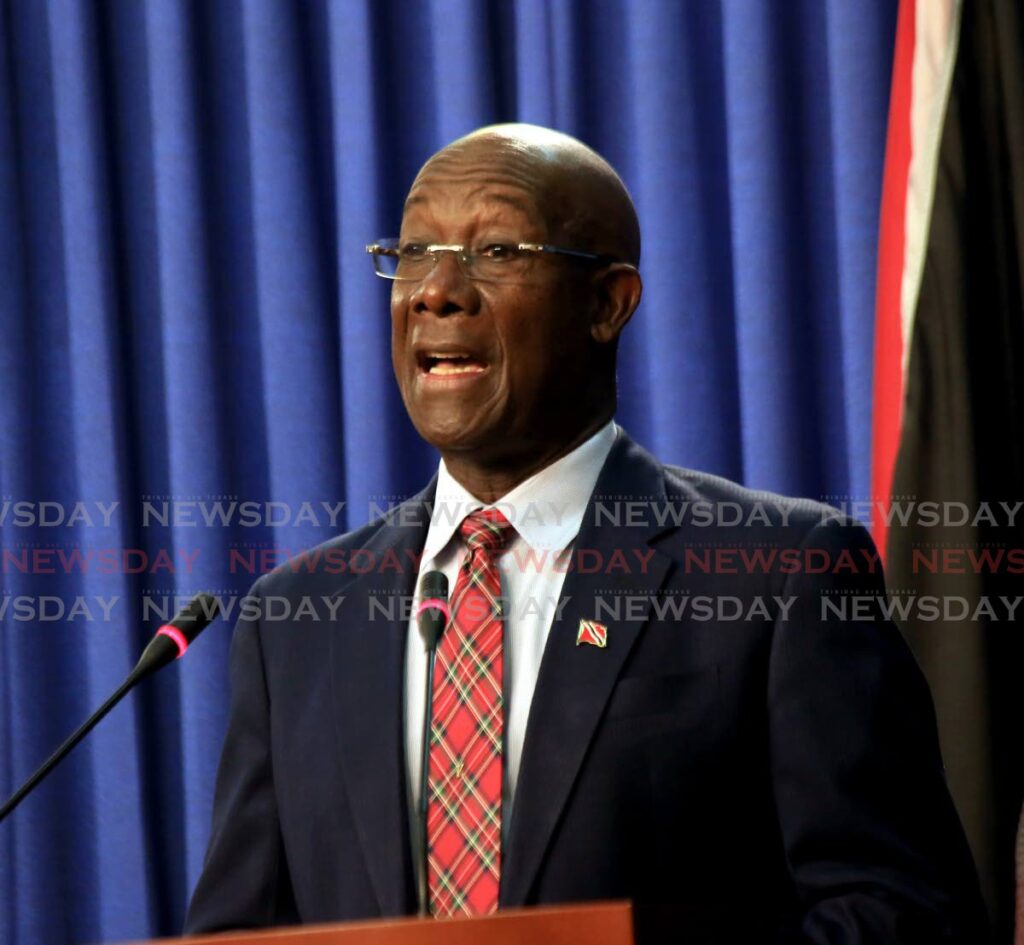‘Journalist’ Rowley

SEVEN YEARS into his tenure, the Prime Minister has finally made powerfully explicit his true view of the local media.
The media, Dr Rowley said on Monday, is a “political problem,” a “love-hate” one that exists in every society because it not only reflects reality but helps shape it.
This prime minister, who swore an oath to uphold a constitution that enshrines freedom of the press among our supreme values, saw no irony in the timing of his remarks days shy of our anniversary of independence nor the chosen venue of his speech: the Caribbean Broadcasting Union’s General Assembly in Tobago.
In fact, he relished the opportunity to lecture.
In what a good journalist would describe as a garrulous presentation, Dr Rowley burnished his “Caribbean nationalist” credentials, described Trinidad as Tobago’s “big sister,” referred to a movement from the sugar trade to data services, alluded to a publication from 1622, noted the invention of the printing press and even quoted poet TS Eliot.
We will spare readers further details. Suffice it to say, Dr Rowley’s gist was simple: Information is important. There is a lot of misinformation now. The media have a role to play.
Except that when it came to the latter rather uncontroversial point, the Prime Minister opted to go further and offer an unsupported critique of what he assessed as current practices. He outlined his own view of who a journalist should be and endorsed warnings against the media being in the clutches of sectarian interests.
Fair enough. Until we remember it was only a few weeks ago the same Dr Rowley not only refused to answer a journalist’s questions about Attorney General Reginald Armour, SC, but went on to try to smear that journalist’s professional reputation.
Journalists are required to be impartial, politicians like to say. But they forget that applies to politicians and their oath of office too.
In this country, there is a general perception of politicians of all stripes holding grudges against specific journalists and media houses, bestowing patronage on only favoured reporters in a highly competitive industry and, often, wilfully scuttling scrutiny.
Instead of a lecture nobody asked for, Dr Rowley should clarify Cabinet’s position on things that affect the flow of information in our society, such as TSTT’s blanking a citizen’s freedom-of-information request on the spurious basis that TSTT is not a public authority.
He should also contextualise. Politicians have at their disposal the entire arsenal of the State, including its spending power and national-security apparatus. Which reporter investigating a tip can feel secure in their efforts?
No amount of spin changes the fact that in today’s world, under today’s economic pressures which exert incredible strain on shrinking newsrooms, when it comes to the media and the State, it is really a case of David versus Goliath.


Comments
"‘Journalist’ Rowley"